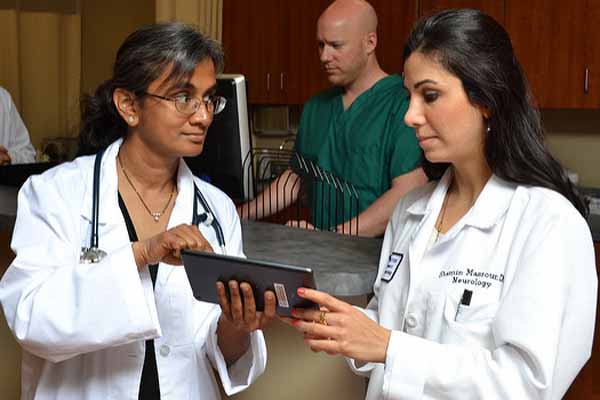
Editor’s note: The Medicine With a Med Student series is written exclusively by Texas medical students. This three-part blog series focuses on women’s health services in Texas under the state’s Healthy Texas Women, Family Planning Program, and Breast and Cervical Cancer Services program. For more information about the authors, see below.
More than 6 million women of reproductive age live in Texas, and 25% of them are uninsured. Health programs that aim to support and improve the health of Texas women are of the utmost importance. However, many Texas women are unaware of the free and low-cost medical services available statewide. Though each of these programs provides its own unique set of services, each contributes to an extensive network whose goal is to address the barriers many women face when seeking comprehensive, affordable obstetric and gynecological health care.
Healthy Texas Women
Healthy Texas Women (HTW) provides preventive health services and limited primary care to uninsured, low-income Texas women through a network of participating physicians, clinics, and pharmacies.
By enrolling, women gain access to annual gynecological exams; tests for pregnancy and sexually transmitted diseases; vaccinations; breast and cervical cancer screenings; and family planning services, including a choice of contraceptive options such as long-acting reversible contraceptives (LARCs), intrauterine devices, oral contraceptive pills, or permanent sterilization if that is a woman’s preferred option. HTW also works to address health challenges women face by screening for common chronic conditions, including cholesterol, diabetes, postpartum depression, and high blood pressure, as well as providing basic primary care and prescription drug treatment. HTW provides no specialty care services.
HTW is not available to pregnant women. However, HTW Plus serves eligible, low-income women who have been pregnant within the past year, most of whom recently lost pregnancy-related Medicaid coverage, which ends 60 days postpartum. (Part 3 of this series will take a look at developments in the 2021 Texas Legislature impacting Medicaid and women’s health.)
HTW Plus offers enhanced, albeit limited, postpartum services, including coverage for psychotherapy and peer specialist services for depression and other mental health conditions; imaging studies; medications; monitoring for cardiovascular and coronary conditions; and screening, intervention, and counseling services for substance use disorders. Coverage lasts for up to one year. When HTW Plus benefits end, women remain eligible for HTW basic.
Outside those health issues tied to pregnancy and reproductive care, women’s health extends beyond physical well-being to include mental, emotional, and social wellness. HTW also addresses these through collaborations with substance abuse program centers, mental health inpatient care and housing, and hotlines. These resources are especially important as we recognize the potential negative impacts of the COVID-19 pandemic.
With the ongoing pandemic, access to preventive and primary care and telemedicine services is more important than ever. HTW has risen to this challenge with care to cover these needs and provides resources for women to find a testing site or authorized physician or health care professional.
Only certain patients are eligible to enroll in HTW. Women can enroll if they are between the ages of 15 and 44, uninsured, and not currently pregnant. They also must be a U.S. citizen or legal immigrant living at or below 203% of the federal poverty level adjusted for family size. If a woman was pregnant in the past 12 months and meets the eligibility criteria, she can enroll in HTW Plus.
If your patients meet these criteria, there are many ways for them to apply. Applications are available online in English and Spanish through YourTexasBenefits.com, or by phone at 2-1-1 between 8 am and 6 pm CT, Monday through Friday. Physical applications can be picked up at a Women, Infants and Children program office and faxed or mailed in, or women can apply in person at participating clinics. Keep in mind they’ll need to provide proof of identity and citizenship or immigration status, income, and the amount of money spent on child care or child support.
To learn more about HTW, visit the website.
Sarah Miller, MD, MPH
UT Rio Grande Valley School of Medicine, Class of 2021
First-year resident, UC Davis Family and Community Medicine
Immediate Past Chair, Texas Medical Association Medical Student Section (MSS) Executive Council
Winona Gbedey
Third-year medical student, UT Health San Antonio Long School of Medicine
Member, TMA MSS
Chelsea Gerlicki
Third-year medical student, Texas Tech University Health Sciences Center
Member, TMA MSS